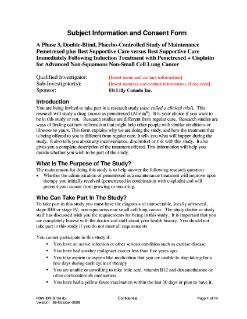Related Research Articles
The Nuremberg Code is a set of research ethics principles for human experimentation created by the U.S. v Brandt court as one result of the Nuremberg trials at the end of the Second World War. In a review written on the 50th anniversary of the Brandt verdict, Jay Katz writes that "a careful reading of the judgment suggests that [the authors] wrote the Code for the practice of human experimentation whenever it is being conducted."

Informed consent is a principle in medical ethics and medical law that a patient should have sufficient information before making their own free decisions about their medical care. A healthcare provider is often held to have a responsibility to ensure that the consent that a patient gives is informed, and informed consent can apply to a health care intervention on a person, conducting some form of research on a person, or for disclosing a person's information. Informed consent is, in fact, a fundamental principle in the field of health protection, obviously wanting to mark the very close and unavoidable connection between the need for consent and the inviolability of the right to health. A health care provider may ask a patient to consent to receive therapy before providing it, a clinical researcher may ask a research participant before enrolling that person into a clinical trial, and a researcher may ask a research participant before starting some form of controlled experiment. Informed consent is collected according to guidelines from the fields of medical ethics and research ethics.
In developmental psychology and moral, political, and bioethical philosophy, autonomy is the capacity to make an informed, uncoerced decision. Autonomous organizations or institutions are independent or self-governing. Autonomy can also be defined from a human resources perspective, where it denotes a level of discretion granted to an employee in his or her work. In such cases, autonomy is known to generally increase job satisfaction. Self-actualized individuals are thought to operate autonomously of external expectations. In a medical context, respect for a patient's personal autonomy is considered one of many fundamental ethical principles in medicine.
Bioethics is the study of the ethical issues emerging from advances in biology, medicine and technologies. It proposes the discussion about moral discernment in society and it is often related to medical policy and practice, but also to broader questions as environment and well-being. Bioethics is concerned with the ethical questions that arise in the relationships among life sciences, biotechnology, medicine, politics, law, theology and philosophy. It includes the study of values relating to primary care, other branches of medicine, ethical education in science, animal, and environmental ethics.
Medical ethics is an applied branch of ethics which analyzes the practice of clinical medicine and related scientific research. Medical ethics is based on a set of values that professionals can refer to in the case of any confusion or conflict. These values include the respect for autonomy, non-maleficence, beneficence, and justice. Such tenets may allow doctors, care providers, and families to create a treatment plan and work towards the same common goal. It is important to note that these four values are not ranked in order of importance or relevance and that they all encompass values pertaining to medical ethics. However, a conflict may arise leading to the need for hierarchy in an ethical system, such that some moral elements overrule others with the purpose of applying the best moral judgement to a difficult medical situation. Medical ethics is particularly relevant in decisions regarding involuntary treatment and involuntary commitment.

Human subject research is systematic, scientific investigation that can be either interventional or observational and involves human beings as research subjects, commonly known as test subjects. Human subject research can be either medical (clinical) research or non-medical research. Systematic investigation incorporates both the collection and analysis of data in order to answer a specific question. Medical human subject research often involves analysis of biological specimens, epidemiological and behavioral studies and medical chart review studies. On the other hand, human subject research in the social sciences often involves surveys which consist of questions to a particular group of people. Survey methodology includes questionnaires, interviews, and focus groups.
An institutional review board (IRB), also known as an independent ethics committee (IEC), ethical review board (ERB), or research ethics board (REB), is a type of committee that applies research ethics by reviewing the methods proposed for research to ensure that they are ethical. Such boards are formally designated to approve, monitor, and review biomedical and behavioral research involving humans. They often conduct some form of risk-benefit analysis in an attempt to determine whether or not research should be conducted. The purpose of the IRB is to assure that appropriate steps are taken to protect the rights and welfare of humans participating as subjects in a research study. Along with developed countries, many developing countries have established national, regional or local Institutional Review Boards in order to safeguard ethical conduct of research concerning both national and international norms, regulations or codes.
Nursing ethics is a branch of applied ethics that concerns itself with activities in the field of nursing. Nursing ethics shares many principles with medical ethics, such as beneficence, non-maleficence and respect for autonomy. It can be distinguished by its emphasis on relationships, human dignity and collaborative care.
The Belmont Report is a report created by the National Commission for the Protection of Human Subjects of Biomedical and Behavioral Research. Its full title is the Belmont Report: Ethical Principles and Guidelines for the Protection of Human Subjects of Research, Report of the National Commission for the Protection of Human Subjects of Biomedical and Behavioral Research.
The Declaration of Helsinki is a set of ethical principles regarding human experimentation developed originally in 1964 for the medical community by the World Medical Association (WMA). It is widely regarded as the cornerstone document on human research ethics.
Marketing ethics is an area of applied ethics which deals with the moral principles behind the operation and regulation of marketing. Some areas of marketing ethics overlap with media and public relations ethics.
Animal ethics is a branch of ethics which examines human-animal relationships, the moral consideration of animals and how nonhuman animals ought to be treated. The subject matter includes animal rights, animal welfare, animal law, speciesism, animal cognition, wildlife conservation, wild animal suffering, the moral status of nonhuman animals, the concept of nonhuman personhood, human exceptionalism, the history of animal use, and theories of justice. Several different theoretical approaches have been proposed to examine this field, in accordance with the different theories currently defended in moral and political philosophy. There is no theory which is completely accepted due to the differing understandings of what is meant by the term ethics; however, there are theories that are more widely accepted by society such as animal rights and utilitarianism.

Principlism is an applied ethics approach to the examination of moral dilemmas that is based upon the application of certain ethical principles. This approach to ethical decision-making has been adopted enthusiastically in many different professional fields, largely because it sidesteps complex debates in moral philosophy at the theoretical level.
The Office for Human Research Protections (OHRP) is a small office within the United States Department of Health and Human Services (DHHS), specifically the Office of the Assistant Secretary for Health in the Office of the Secretary of DHHS, that deals with ethical oversights in clinical research conducted by the Department, mostly through the National Institutes of Health (NIH).
Human subject research legislation in the United States can be traced to the early 20th century. Human subject research in the United States was mostly unregulated until the 20th century, as it was throughout the world, until the establishment of various governmental and professional regulations and codes of ethics. Notable – and in some cases, notorious – human subject experiments performed in the US include the Tuskegee syphilis experiment, human radiation experiments, the Milgram obedience experiment and Stanford prison experiments and Project MKULTRA. With growing public awareness of such experimentation, and the evolution of professional ethical standards, such research became regulated by various legislation, most notably, those that introduced and then empowered the institutional review boards.
Various organizations have created guidelines for human subject research for various kinds of research involving human subjects and for various situations.
Clinical research ethics are the set of relevant ethics considered in the conduct of a clinical trial in the field of clinical research. It borrows from the broader fields of research ethics and medical ethics.
In research ethics, justice is the fair selection of research participants. Justice is the ideal distribution of risks and benefits when scientists conducting clinical research are recruiting volunteer research participants to participate in clinical trials. The concept gives guidelines on how scientific objectives and not membership in either a privileged or vulnerable population should determine which members of which communities should meet inclusion criteria to participate in research in order to most equitably share the risks and benefits of the research.
The Menlo Report is a report published by the U.S. Department of Homeland Security Science and Technology Directorate, Cyber Security Division that outlines an ethical framework for research involving Information and Communications Technologies (ICT).
Medical genetic ethics is a field in which the ethics of medical genetics is evaluated. Like the other field of medicine, medical genetics also face ethical issues.
References
- ↑ "Belmont Report: Ethical Principles and Guidelines for the Protection of Human Subjects of Research". Washington, DC: U.S. Government Printing Office. Archived from the original on April 26, 2012.
- ↑ "6.4.1 Respect for Persons". www.bitbybitbook.com. Retrieved 2021-04-24.
- ↑ Cook, D.; Moore-Cox, A.; Xavier, D.; Lauzier, F.; Roberts, I. (2008). "Randomized Trials in Vulnerable Populations". Clinical Trials. 5 (1): 61–69. doi:10.1177/1740774507087552. PMID 18283082. S2CID 206772258.
- ↑ Levine, Robert J. (1988). Ethics and regulation of clinical research (2nd ed.). New Haven, Conn.: Yale University Press. ISBN 978-0-300-04288-7.
- 1 2 Ruof, Mary, C. (2004). "Vulnerability, Vulnerable Populations, and Policy". Kennedy Institute of Ethics Journal. 4 (14): 411–425. doi:10.1353/ken.2004.0044. hdl: 10822/556901 . PMID 15812988. S2CID 19094496.
- ↑ "2. International Ethical Guidelines for Biomedical Research Involving Human Subjects, Council for International Organization of Medical Sciences (CIOMS) and World Health Organization (WHO) Geneva, Switzerland, 2002" (PDF). Archived from the original (PDF) on 2010-08-23.